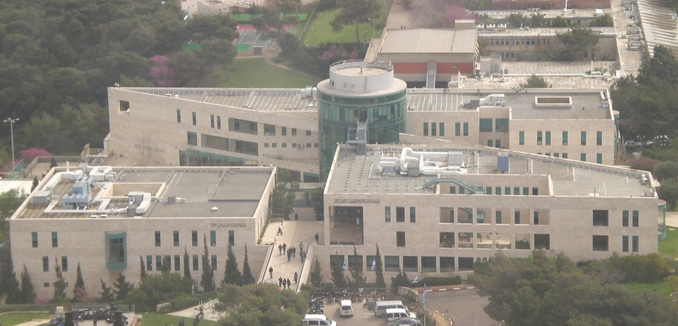The Times of Israel reported yesterday on recent cooperative agreements between Israeli and American universities.
The article highlighted a recently concluded agreement between Cleveland State University and the University of Haifa.
The agreement was signed by CSU President Ronald Berkman and University of Haifa Rector David Faraggi, who was in Cleveland for a two day visit. The MoU, said CSU Communications Director Kevin Ziegler, “provides an affirmation from both sides that we’re going to work together to make this happen. It’s [a way] of saying we’re serious. That we’re going to treat each other like partners on this and make things happen.’
Ziegler told CSU’s student newspaper, The Cauldron, “Haifa is one of the major cities in Israel. They have an urban campus, and they have a diverse student population like we do. They have full-time students, part-time students, residential and commuter students — [and] they have students who might be going back to school as adults. They share that type of diversity, so it seemed to be a good fit for us to look at programs together.”
The article also noted the strengthening of ties between Israeli institutions and Texas A & M University, which has a working agreement with Ben Gurion University, is planning to build a campus in Nazareth and generally “plans to expand its programs in Israel.”
The Times framed the academic cooperation as a rejection of the Boycott, Divestment and Sanctions (BDS) movement.
Anti-Israel activity and especially boycott drives make considerable noise on university campuses, but the record shows that schools that ignore or reject the pressure can profit from relationships with Israeli institutions of higher learning — and not just academically.
The advanced technology being researched and developed at Israeli universities is cited as a driving factor behind American academic partnerships with Israeli universities.
Last year, a group of American university presidents visited Israel and met with their counterparts from Hebrew University, Tel Aviv University and the Technion. Also last year, Stanford University joined with Hebrew University to open the BioDesign Innovation Institute to develop and market new medical technologies. In February of this year, Princeton University chose the Interdisciplinary Center Herzliya to be the first Middle Eastern partner for its Woodrow Wilson School of Diplomacy. A few months later, Massachusetts Institute of Technology expanded its academic ties to Israel by signing a partnership agreement with Ben Gurion University.
Molly Rosen, who published Staring Down the Devil at the University of Michigan in the April 2014 issue of The Tower Magazine, and Tessa Nath, who wrote Why Are Student Leaders and Jewish Bruins Under Attack at UCLA? for the June 2014 issue, documented the viciousness and incivility that mark the BDS movement in two major American universities.
[Photo: Marc Smith / Flickr ]




